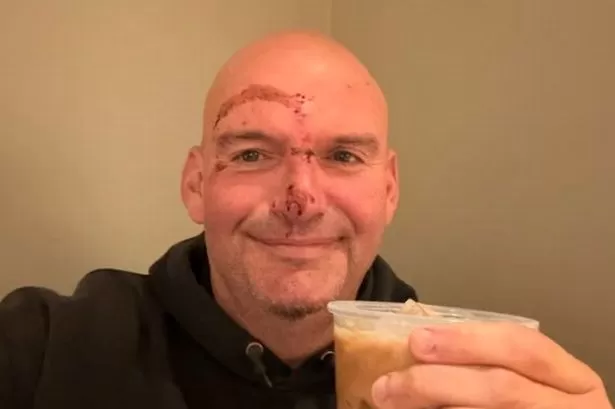The Hoosier State's Line in the Sand: When Indiana Republicans Said "No, Thanks" to Trump's Redistricting Gambit
Share- Nishadil
- November 16, 2025
- 0 Comments
- 3 minutes read
- 31 Views

Indiana Republicans Push Back on Trump's Redistricting Plea
In a rather interesting turn of events, Indiana Senate Republicans decided to pump the brakes on a specific request from former President Trump, effectively declining his push for a special session to redraw the state's congressional maps. They're sticking by their guns, it seems, confident in the lines already drawn.
In the vast, sprawling landscape of American politics, where the shadow of former President Donald Trump often looms large, one might assume his word is, for many Republicans, gospel. And yet, every so often, a fascinating ripple appears in that political pond—a moment of unexpected pushback. Such a moment, rather striking, recently unfolded in the heart of the Hoosier State, where Indiana's own Senate Republicans quietly but firmly rebuffed a specific, very public demand from the former president himself.
The ask? Well, it wasn't a small one, not by any stretch. Trump had been publicly—and quite vocally, mind you—urging Indiana's legislative body to convene a special session in December. Why? To revisit and, frankly, redo the state's existing congressional maps. He’d argued, with characteristic vigor, that the current district lines were somehow "unfair" to Republicans, potentially leading to what he dramatically termed "disastrous" results come the 2024 elections. It was, in essence, a call for a swift, late-game political overhaul.
But here’s the rub, the point of divergence. The state's Senate Republicans, through a rather succinct joint statement from Lieutenant Governor Suzanne Crouch and Senate Pro Tempore Rodric Bray, decided to hold their ground. They simply declined the special session, stating unequivocally that they stood by the maps enacted way back in 2021. And for good reason, you could say. After all, seven of Indiana's nine congressional districts are, quite comfortably, held by Republicans. So, where exactly was the "disaster," one might reasonably ask? Beyond that, there was a palpable sense of apprehension—a worry about setting a potentially troublesome precedent, perhaps, revising electoral maps merely on a whim, especially one driven by partisan anxieties.
Now, to be fair, the Indiana House Republicans did actually gather in December, at least to "review options." But even there, a similar sentiment seemed to prevail. House Speaker Todd Huston, while acknowledging the discussions, also, well, he largely dismissed the idea of a full redraw. His words, much like his Senate counterparts, underscored the undeniable reality: the 7-2 Republican advantage in congressional seats. It just wasn't, to put it mildly, screaming "crisis" to them.
What this whole episode really illustrates, in truth, is the nuanced, often complex interplay between national political figures and state-level governance. While Trump certainly holds immense sway over a significant portion of the Republican base, this particular instance shows there are lines, boundaries perhaps, where local legislators, honestly, prefer to make their own calls. It's a small but meaningful reminder, isn't it? Even within the broader Republican tapestry, threads of independent thought and pragmatic decision-making sometimes emerge, charting their own course, even if that course diverges from a former president's urgent pleas.
Disclaimer: This article was generated in part using artificial intelligence and may contain errors or omissions. The content is provided for informational purposes only and does not constitute professional advice. We makes no representations or warranties regarding its accuracy, completeness, or reliability. Readers are advised to verify the information independently before relying on







